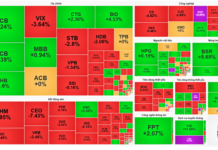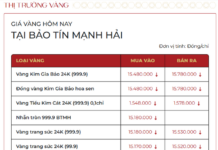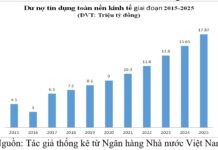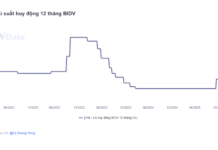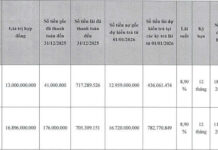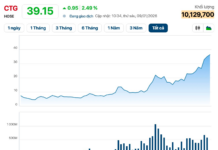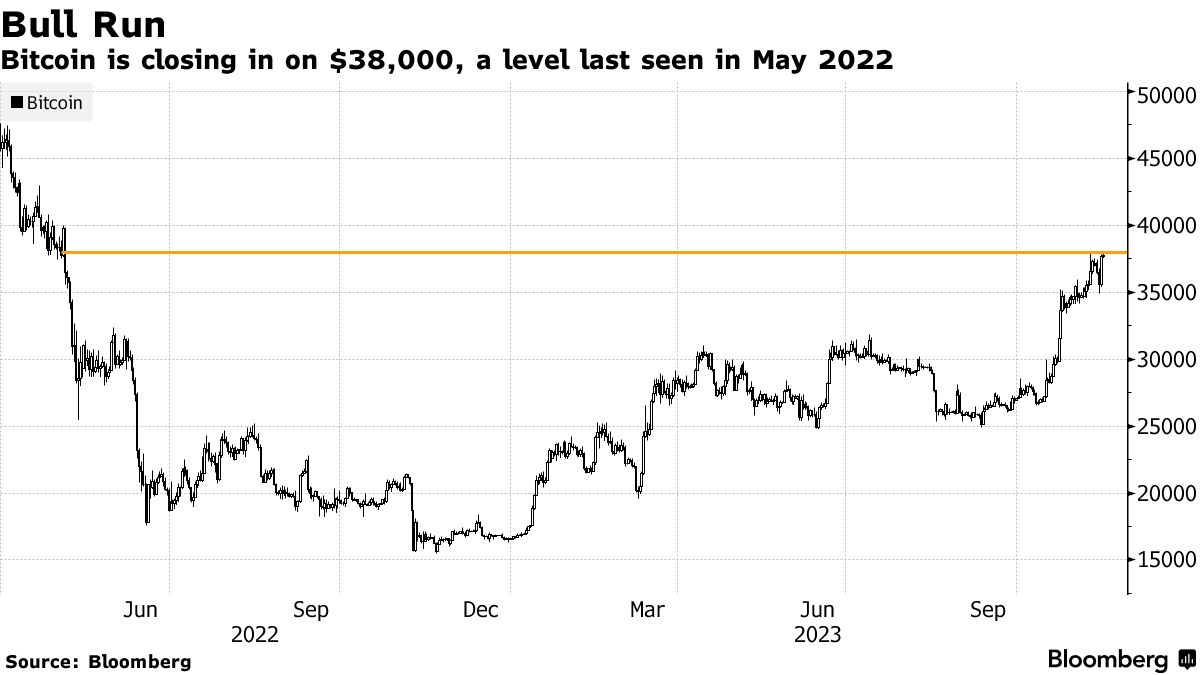
Digital asset legislation is no longer a distant concept in Vietnam – Illustrative image
|
It’s time to legalize digital currencies.
The period between 2020 and 2022 witnessed a wave of investment in digital assets sweeping across Vietnam. Cryptocurrencies were no longer just a technological concept but became a new avenue for wealth creation in the eyes of many young people. F0s flooded international exchanges, Telegram groups sprouted like mushrooms, and excitement spread with each price surge. However, after the x5 and x10 gains, there were strings of losses, exchange collapses, and worthless coins disappearing, coupled with confusion in an unregulated market.
By early 2025, the legal tide began to turn. Directive 05/CT-TTg tasked the Ministry of Finance and related agencies with proposing a regulatory framework for digital assets. The National Assembly passed the Digital Industry Law, which first defined “digital assets.” No longer in a “gray area,” digital assets are gradually being brought within the official legal framework.
Investors still carry the mentality of “getting rich quick”
Mr. N.A., an amateur investor in Hanoi, recalled 2021: “Everyone said that you just needed to pick the right coin, and your account could triple or quintuple in value. At first, I made a profit of nearly VND 300 million, but then I lost it all. The leverage was high, the coin value dropped, and the exchange disappeared. The more I lost, the more I wanted to recoup my losses, and in the end, I was left with nothing but debts that I didn’t know how to settle.”
Similarly, Ms. T.L., a marketing employee in Ho Chi Minh City, once got caught up to the point where she would wake up every day to check her wallet for gains or losses: “There were days when my balance increased by a few hundred USD, but there were also nights when I lost a third of my portfolio value within a few hours. Every time the tokens turned red, my heart would sink. Eventually, I had to uninstall all coin-related apps to stop obsessing over them.”
The experiences of Mr. N.A. and Ms. T.L. are not unique but reflect the common journey of F0 investors – newcomers to the market who typically make decisions based on emotions, rumors, and tips from Telegram groups. They primarily trade on international exchanges or through OTC intermediaries, lacking legal protection, verification, and clear frameworks. Consequently, when risks occur, losses are inevitable.
According to data from Triple-A, more than 17 million Vietnamese own crypto assets, placing Vietnam in the global top 7 with a 17% ownership rate, far exceeding the world average of 6.5%. This is all the more reason for this market to be guided towards greater transparency.
Mr. K.V., with nearly a decade of experience in the digital currency market, opined: “Without legal protection, trust in exchanges relies solely on… promises. When something goes wrong, users are left largely unprotected. I’ve lost money due to exchanges being ‘hacked,’ and they simply announced that they wouldn’t take responsibility. If Vietnam had a regulatory framework, even just requiring exchanges to disclose their insurance policies, it would be a significant step forward.”
Laws cannot replace prudence
However, it’s clear that not everyone will “invest wisely” just because there are laws in place. Investment behavior is often closely tied to psychology, and psychology cannot be changed overnight. A 2023 survey revealed that nearly 40% of digital currency investors in Vietnam admitted to investing based on emotions or rumors, despite knowing the high risks.
Ms. K.T., a long-time investor in Ho Chi Minh City, candidly shared her perspective: “While laws help make the market safer, the most significant risk lies within the investors themselves. If people continue to chase rumors and blindly surf the waves, having laws won’t make a difference.”
Mr. H.S., a blockchain expert, concurred: “We shouldn’t expect laws to turn everyone into prudent investors. They provide a framework but not a guarantee of success.”
At an economic forum in June 2025, Mr. To Tran Hoa, Vice Head of the Market Development Division of the State Securities Commission, proposed that the sandbox approach is a suitable way to regulate innovative models like digital assets. However, he emphasized that sandboxes are not “lawless zones” but should be built with clear criteria to encourage innovation while protecting investors.
To effectively test the digital asset exchange model, establishing a transparent market structure is mandatory. Mr. Phan Duc Trung, Chairman of the Vietnam Blockchain Association, suggested specific requirements: Assets must have a clear origin, smart contracts need to be audited, issuers must disclose whitepapers, and money flow must be traceable. Otherwise, sandboxes will become unchecked zones, no different from OTC disguises.
From an investor’s perspective, Mr. Đ.L. believed that when the legal framework becomes clearer, many people will start thinking differently: “If investments can be reported for tax purposes, assets are protected, and transactions are transparent, the trend of accumulating assets and long-term investing will prevail. People will consider the actual value of projects instead of chasing obscure coins just because of hype.”
Mr. Q.A., who has been following Thailand’s development model, also suggested that if Vietnam offered a tax exemption for a few years on digital assets, it would attract F0 capital back through more legitimate channels. “Instead of encouraging people to find loopholes, give them a clear path to walk on,” he said, envisioning a future where digital assets seamlessly integrate into the financial system, making Vietnam a destination in Asia.
Will legislation restrain or open up the market?
Ultimately, a transparent market is the foundation for limiting risks and paving the way for technological development. However, not everyone is optimistic. A small investor like Ms. V.H. wondered: “Clear laws are good, but if the management is too tight, small players like me will still find ways to bypass unregulated OTC exchanges. And if it’s too loose, who can guarantee that the market won’t become a speculative playground?”
She raised the question: While laws can provide direction, they cannot entirely change the volatile nature of digital currencies. Investors still need to equip themselves with knowledge and risk management skills, rather than relying solely on the law to “protect” them.
As Vietnam stands at the threshold of a new era in digital finance, the path forward is full of promise and challenges. Enacting laws on digital assets will be a catalyst for the market to transform from “emotion” to “strategy,” from speculation to asset accumulation, and from secrecy to transparency. However, it could also be a mirror if investors don’t change their mindset, and the old cycle continues.
Mr. N.A., after his losses, is now more cautious: “I haven’t given up on digital assets, but now I only invest what I’m willing to lose.” Meanwhile, Ms. T.L. chooses to stay on the sidelines: “Whether there are laws or not, I still need time to understand this space better before diving back in.”
The current question is not just “Will the law make the market more transparent?” but also, “Are investors ready to change and embrace a healthier market?”
Detained: Woman Impersonating a Bank Employee to Commit Fraud
“A cunning con artist, Lăng Ngọc Diễm, weaved a web of deceit, posing as a bank employee in An Giang. With calculated charm, she ensnared four unsuspecting victims, only to vanish into thin air, leaving a trail of broken dreams and financial ruin in her wake.”
“KN Holdings and Samsung C&T Collaborate on Floating Solar Project”
“KN Holdings is proud to announce its collaboration with Samsung C&T to develop three floating solar power projects, totaling an impressive 864 MW of expected capacity. This partnership aims to provide clean energy to large power consumers, showcasing a commitment to sustainability and innovation in the energy sector.”
Exporting Crab and Shrimp Hits a 10-Year Record High, Raking in Billions
In the first half of 2025 alone, crab and crayfish exports reached a staggering $173 million, surging by 38% compared to the same period in 2024. This remarkable achievement sets a new record high for the past decade, showcasing the thriving nature of the industry.

